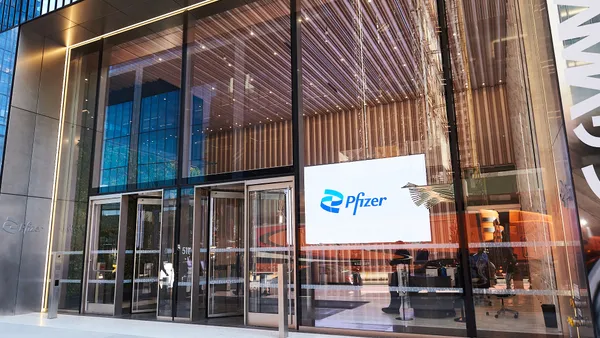PV: What are some ways pharmaceutical companies can use social media to reach patients? Gupta: The key benefit for pharmaceutical companies is to better understand the patient’s perspective. For many illnesses, especially chronic diseases, patients face many issues beyond the actual medication, such as quality of life and the suffering a patient may be experiencing. Diseases can also impact a patient’s family. Cancer, for example, affects not only the patient but also his or her loved ones. Social media can be an extremely powerful tool to address the emotional and social components of illness. Patient communities, such as Patients Like Me, provide a huge support system for patients and their families. It’s amazing how much patients can learn from each other. Through these patient communities, pharma companies can understand the patient’s daily lives, something they can’t get from traditional market research or focus groups. This is a natural conversation rather than an artificial dialogue that happens during typical market research. Social pressure, which can be applied through social media, can be helpful in improving compliance. This can be very beneficial for both the health management services and the pharma industry. PV: What impact will smartphones have on healthcare? Gupta: The first reaction most companies have is to continue doing what they’ve always done but with the new technology. I don’t think this is the right way to proceed. In the consumer goods industry, for example, companies that provided coupons through newspapers are now providing coupons by mobile phone. This is not powerful because it is not leveraging the unique aspect of mobile phones. Companies have to think much more clearly about what a mobile phone can do that they couldn’t do before. For example, Telefonica has developed a knee brace embedded with motion sensors that enable physicians to remotely monitor patients’ rehabilitation after they have been discharged from the hospital. This is just one example of an innovative way to provide value to the patient and the physician. The ultimate test of technology is to do things that weren’t possible before. Smartphones will have a big impact because they are everywhere, even in emerging markets, where more consumers have access to mobile phones than broadband. For example, in some countries where counterfeit drugs are a big problem, some companies are beginning to create a code on the packaging, so patients can send a text message to the pharmaceutical company with this code to make sure the medication is not fake. Simple technology like this can be extremely powerful in emerging markets. PV: What impact will social media have on the physician community? Gupta: Physicians who need information about a drug or a particular treatment can get that information by reading journal articles, from a medical rep, by searching Google, and increasingly through a network of other physicians. Social networks change the way information is shared, providing physicians with powerful and credible information and a way to network with peers. Pharmaceutical companies could also become facilitators for physicians communities. These days, physicians don’t have time to meet with medical reps. Social networks can help to build a community of physicians and facilitate those relationships just as they do with patients. Sunil Gupta, the Edward W. Carter Professor of Business Administration and Head of the Marketing Unit at Harvard Business School, contends that a social media plan can provide pharmaceutical companies with a powerful tool for understanding patients. Engaging Patients Through Social Media Social Media No Longer a Fad 1: The Pharma Strategy Has Changed. Medicine has changed from chasing mass-market conditions to disease categories that impact fewer subsets of people. Marketing has been forced to respond. Social media marketing programs are designed to engage with the patient on a personal level. By its nature, social media is best suited for a specific audience with similar interests. 2: Shrinking Sales Forces in Favor of Targeted Efforts. Pharmaceutical companies no longer have a need for the same massive sales forces of yesteryear. Now, it’s about leveraging relationships to offer a product or service of value. An effective social media program can help the focused efforts of a sales force by creating demand at the patient level and awareness at the physician level. 3: Patients Have More Information and Play a Larger Role in Health Decisions. Patients now play a much larger role in their health decisions than ever before. This dynamic probably plays the largest role in influencing the shift in marketing. Pharmaceutical companies need to adopt a philosophy that not only considers return on investment, but also return on health (ROH). The job of marketers has changed from pushing information to engaging in a two-way conversation with the patient. 4: Regulatory Environment is Showing Signs of Life. The hurdle posed by the regulatory environment looks to be smaller every day. Some pharmaceutical marketers have been content to sit on the sidelines purely out of fear. As the FDA loosens its grip on social media, the pharma industry will surely show a greater sense of urgency to begin the social media engagement process. Source: Shift Communications. For more information, visit shiftcomm.com The Last Word
An article from


Last Word
Filed Under:
Commercialization










